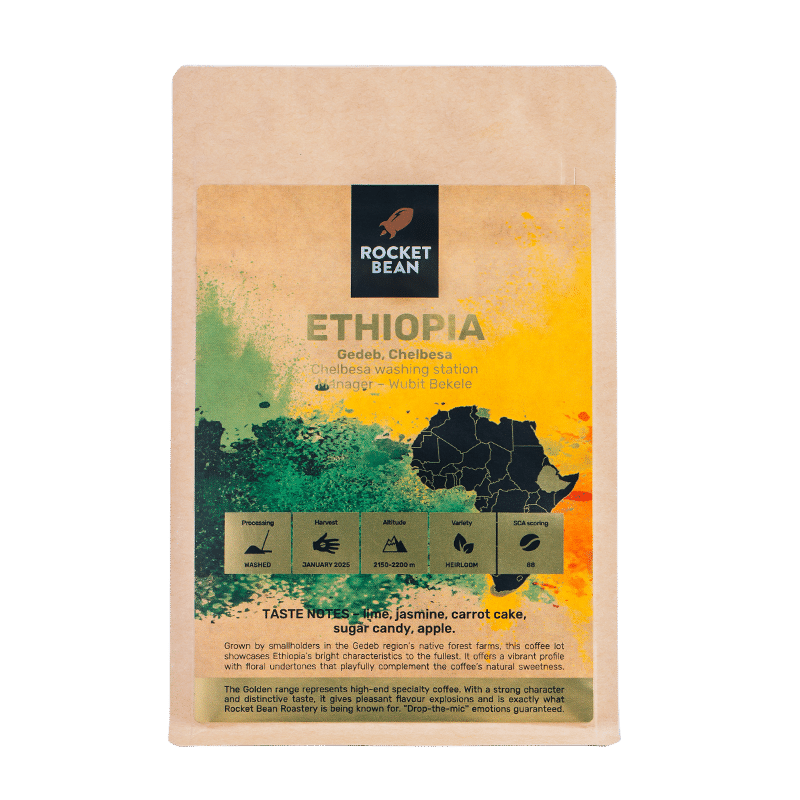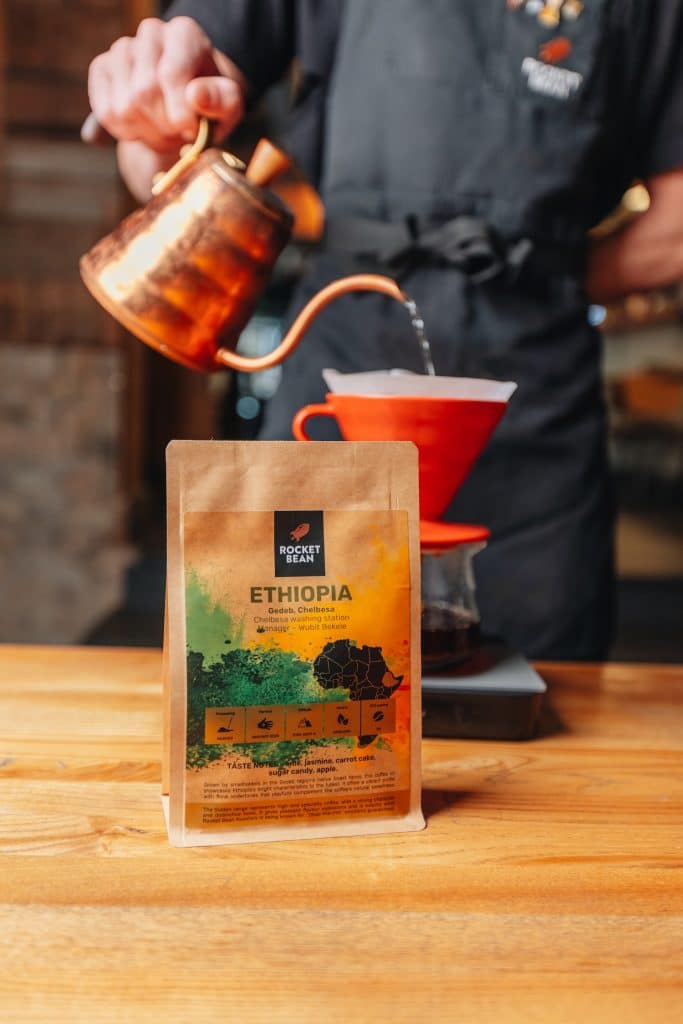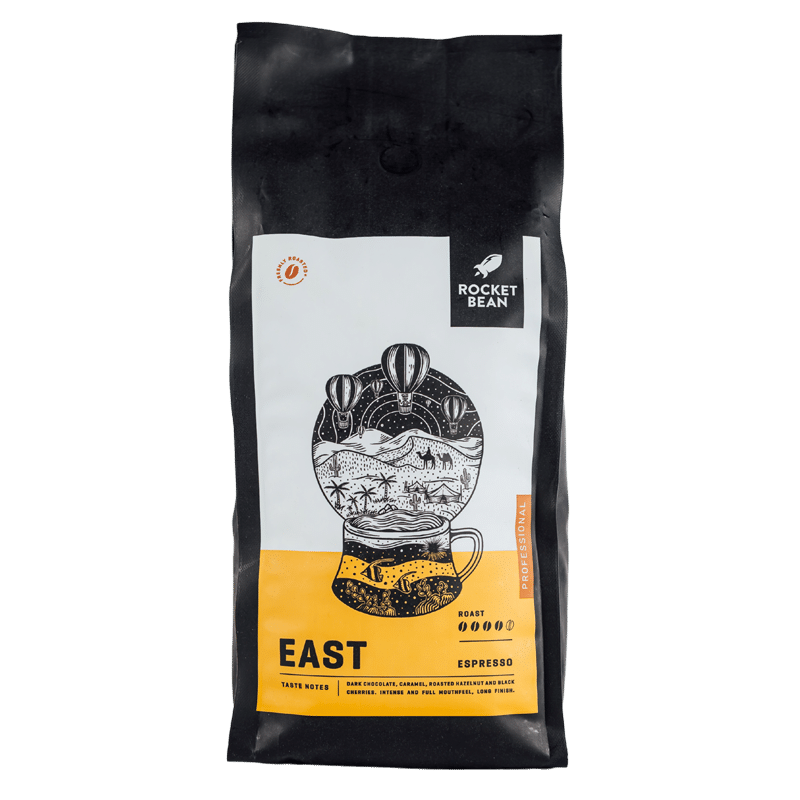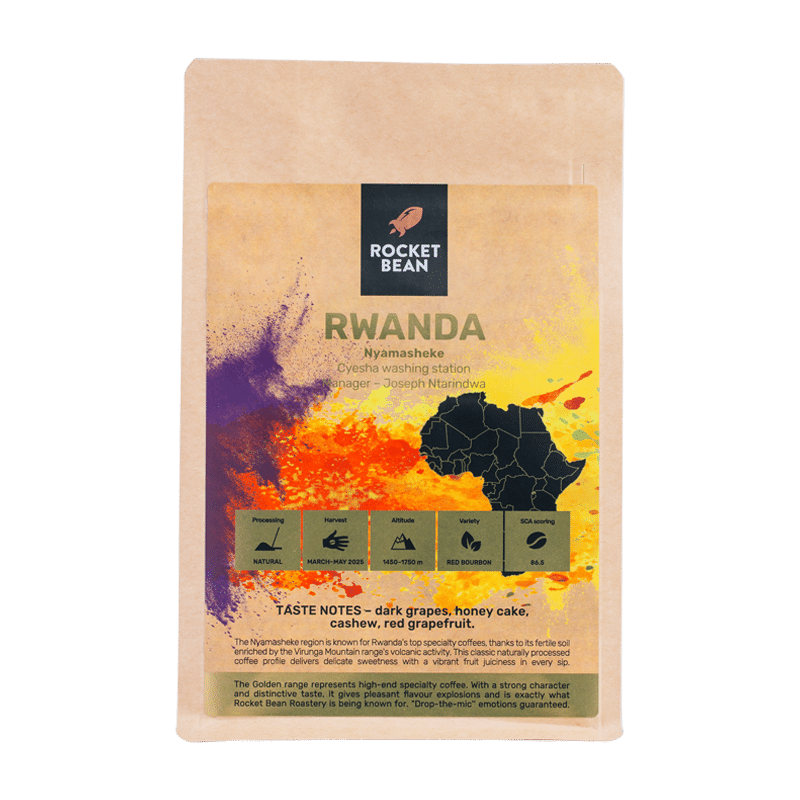Ethiopia | Gedeb, Chelbessa, Washed
filter
- Country: Ethiopia
- Region: Gedeb, Chelbesa
- Washing station: Chelbesa washing station
- Producers: Wubit Bekele
- Taste and Arome: Lime, jasmine, carrot cake, sugar candy, apple
16,00 €
Processing
Washed
Harvest
January 2025
Altitude
2150-2200 m
Variety
Heirloom
Scoring
88
Grown by smallholders in the Gedeb region’s native forest farms, this coffee lot showcases Ethiopia’s bright characteristics to the fullest. It offers a vibrant profile with floral undertones that playfully complement the coffee’s natural sweetness.
Ethiopia
Ethiopia is like the first sign of spring—fresh, full of life, and full of bright, inviting smells. It’s the birthplace of coffee, and it offers a wide range of flavors that make each cup special. You can find everything from citrus and sweet stone fruits to juicy tropical fruits, all mixed with floral, spicy, and light tea-like notes. Coffee has been part of Ethiopian life for hundreds of years. There’s a famous story about a goat herder named Kaldi who noticed his goats getting lively after eating coffee cherries. That’s how coffee started to spread, eventually making its way around the world. But Ethiopia is still the heart of it all.
Different regions in Ethiopia have their own flavors. For example, Sidamo coffees often taste like tea with bright citrus notes. Guji coffees, on the other hand, are known for their rich, sweet fruit flavors—think ripe mango and peach—with a touch of jasmine and sometimes a little funk that makes them interesting and unique. Flavors don’t come from the land alone. It’s a result of the hard work of small farmers who take great care of their trees and land. They blend old traditions with new ideas every season, making sure the coffee is grown and processed the right way. It’s their dedication that brings out the amazing tastes Ethiopian coffee can offer.
Region – Gedeb
The Gedeb region is in Ethiopia’s so-called Gedeo Zone. It is located just south of the more well-known Yirgacheffe region, but it has built a strong reputation of its own in recent years. While it’s sometimes classified under Yirgacheffe coffees, Gedeb has its own distinct character thanks to its high elevation, fertile soils, and cool climate. Coffee grows slowly here, which helps develop more complex and layered flavours in the cup. Farmers use traditional methods, often growing coffee under shade trees in small garden plots. The result is a cup profile that often features bright citrus acidity, floral notes like jasmine, and fruity tones such as blueberry or dried peach.
Processing
Coffee cherries are grown by regional smallholders and delivered to Chelbesa washing station, where beans are separated from cherries. Coffee then undergoes a fermentation process in washing tanks with clean water for 48 to 72 hours. Following fermentation, the beans are thoroughly washed and then transported to raised African beds to dry for 10 to 15 days. Throughout the drying process, possibly defective ones are sorted out by hand. Once dried, they are moved to a dry mill where they are rested. Finally, coffee husk is removed, and beans are packed into 60kg bags. This careful processing helps bring out the bright Gedeb region’s taste profile to the fullest.





